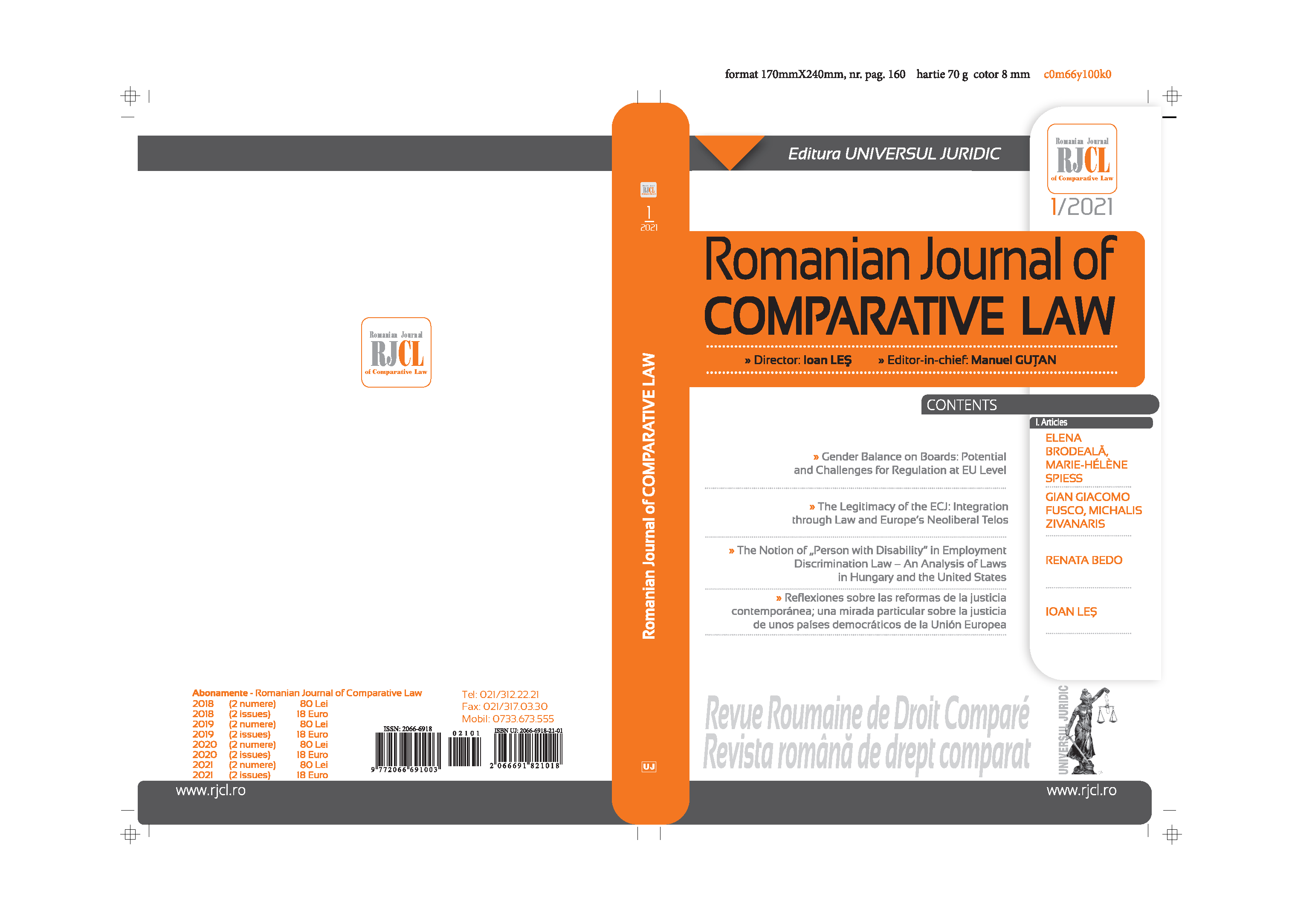Reflexiones sobre las reformas de la justicia contemporánea; una mirada particular sobre la justicia de unos países democráticos de la Unión Europea
Reflexiones sobre las reformas de la justicia contemporánea; una mirada particular sobre la justicia de unos países democráticos de la Unión Europea
Author(s): Ioan LeşSubject(s): Law, Constitution, Jurisprudence, Civil Law
Published by: Universul Juridic
Keywords: state of alert; fine; constitutionality; rule of law; state of emergency; pandemic; court; digitalization;
Summary/Abstract: The author presents the main effects of the Covid-19 pandemic on the rule of law, with a special regard on the situation in Romania. The current sanitary crisis generated major social and economic effects on the whole world and in many generations. In the first part of the study the author presents the legal framework that legitimised the adoption of important measures meant to diminish the effects of the pandemic. From this point of view, the adopted measures were necessary and urgent, although the authorities did not fully justify the disregard, in some cases, of the fundamental rights and freedoms of the citizens. The seriousness of the sanitary crisis cannot be doubted, although some specialists expressed different opinions on its causes and dimensions. The author emphasizes that at the beginning of the pandemic, harsh measures have been adopted in many countries, but some of them were exaggerated and unjustified, like declaring a state of emergency, although the initial situation proved to be much reduced comparing to what happened at the end of 2020 and at the beginning of 2021. In Romania, the measures adopted by the administrative and sanitary authorities were exaggerated at the beginning, as the limitation if the fundamental rights could be decided, according to Article 53 of the Constitution, only by a law and only if they are necessary for “defending national security, public order, health or morals, of the fundamental rights of others (…)”. The same text provides that the limitations can be adopted only if they are necessary in a democratic society, they must be proportionate with the situation that determined them, applied in a nondiscriminatory way and without affecting the existence of the right or freedom in question. However, despite the clarity of the constitutional norm, the measures that affected individual rights were taken even in the repeated extension of the state of alert, which is a situation that is not provided for by the Constitution. The fundamental law regulates only the state of emergency and the state of siege. Among the measures which the author considers unjustified are: the restriction of movement for the elderly (with the exception of two hours/day and only in a limited area – in the proximity of the home) was lacking precision, which caused different application of the measure by the public order authorities. On the other hand, the authorities applied fines much exaggerated in comparison with the financial possibilities of the offenders. In the second part of the study, the author analyses the consequences of the pandemic on the judiciary. In this context, some positive effects of the crisis are emphasized, such as the speeding up of the digitalisation process in the judicial activity, the use of videoconferences for hearing witnesses or experts etc. That is why the author considers that these practices, provided for by a transitory normative act, should be generalised by adopting permanent and general legislative measures. The author also supports the special utility of solving cases in a robotised system, following the example of Estonia, where the results were considered positive. The analysis also emphasizes the situations of other countries. Various courts from France, Spain, Austria, Portugal considered the measures adopted by the administrative authorities illegal and even unconstitutional.
Journal: Revista Română de Drept Comparat
- Issue Year: 2021
- Issue No: 01
- Page Range: 103-129
- Page Count: 27
- Language: English
- Content File-PDF

